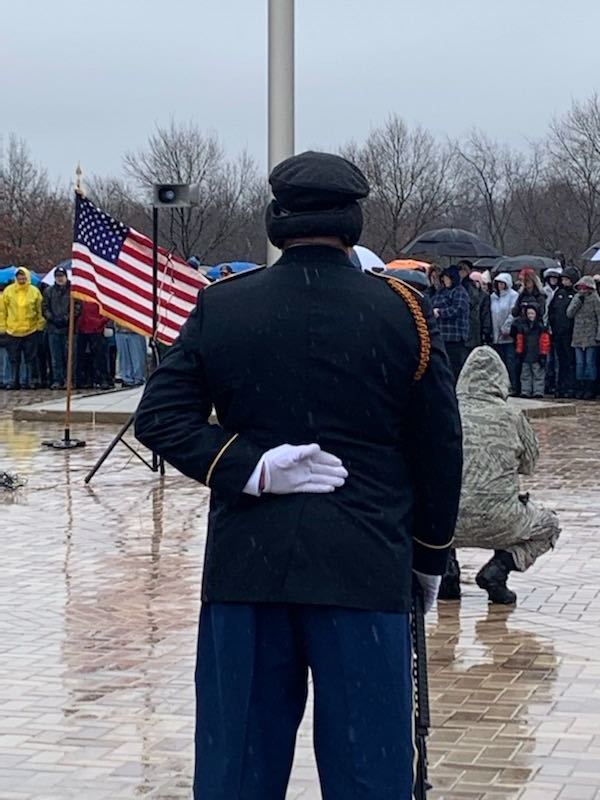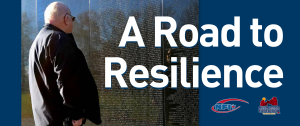
In a profound journey of healing, Leroy N., an NFI truck driver, shares his transformative experience with Waypoint Vets’ Vietnam Mission Expedition. Returning to Vietnam after nearly 50 years marked a pivotal moment for Leroy. His five years in the Army left Leroy fighting battles seen and unseen, and a trip back to Vietnam brought many difficult memories back to life. In the end, by overcoming his apprehensions, Leroy’s trip became a journey of closure and meaningful connections with fellow veterans.
In an interview with NFI, Leroy shared his initial unease about the journey. However, as Leroy embraced the opportunity, he became grateful for the trip. The journey back to Vietnam forged lifelong connections and was a chance to witness positive developments unfolding in the country. Upon his return, Leroy’s growth did not go unnoticed. His changed mindset led to an invitation to the Veteran Summit in Washington, DC. For Leroy, the road to healing has been long, but the trip back to Vietnam brought renewal and support from comrades, family, and his company.
Taking the Wheel
At the core of Leroy’s story is a deep transformation. This journey may be all too familiar to veterans who become truck drivers, as they navigate the twists and turns of returning to civilian life. Leroy was initially uncertain about joining the Vietnam Mission Expedition, but his decision to go became a key moment in his life. With encouragement from Waypoint Vets’ founder, Sarah Lee, and from his employers at NFI, Leroy took a leap of faith. In the end, the trip became a pathway to healing that he never anticipated.
“To be honest when I first thought about it, I didn’t want to go. It took a little bit of talking and Sarah happened to be one of them that talked to me…I’ve [had] phone calls still on my phone asking me why. Why did I go back? Because I was really in a hateful situation when I came home.”
Returning to Vietnam held a deep significance for Leroy, offering him a chance to release pent-up problems and a long-held hatred that had silently burdened him since his military days.
Boots on the Ground
Once in Vietnam, participating veterans spent time redefining their relationship to a place that was filled with difficult memories. The trip included everything from days spent exploring cultural monuments and war memorials in Ho Chi Minh City to voyages into the vast natural landscape of the Mekong River Delta. For many veterans, including Leroy, returning to the sites of the Vietnam war triggered strong, complicated, memories.
“The first time over there, nobody talked to you. I mean, nothing. And usually when they talked to you, it was very bad… We didn’t know if you would live day to day.”
The tipping point for Leroy came through a powerful image – a photograph capturing armed men who were lying on the ground, shot. As a former helicopter door gunner, this picture triggered memories he had kept buried for decades. The picture had even been taken the same day that he witnessed a similar scene from the door of his helicopter. Slowly, with the support of compassionate companions, he began sharing his experiences, untangling the knots in his mind that had lingered for years.
Finding Comrades
Leroy’s experiences on his return trip to Vietnam were closely shaped by the people he shared the journey with. The developing bonds among the group of Vietnam vets played a crucial role in their collective healing. At the start of the trip, silence was everywhere. However, silence soon turned into stories, fostering an environment where they could support each other.
“Nobody talked. Everybody’s quiet. They just bottled up tighter… Within the first 48 hours, we started talking and once we did, it seemed to let a lot of ease off on us and we were able to cut up and enjoy the trip. [We] watched each other really close to make sure we were doing all right.”
As the pressure of unspoken words and memories released, the dynamics shifted, and a sense of ease enveloped the group. This camaraderie became essential, making the trip far more enriching than Leroy had expected.
The expedition wasn’t just a 13,000-mile physical journey; it was a dive into memories and emotions Leroy had long buried. When he first returned home after the war, Leroy was welcomed with very little support.
“Back then you didn’t have no help. You were sent home. You deal with it your way. … It was real rough. And so the best thing I can say is if you have problems, get help … you’re not going to be able to clear everything your own self. Nowadays, we have people to help out. Sometimes they’re just there to listen. And sometimes that’s what makes a difference.”
Healing is a hard-won process for many veterans who make the difficult transition back to civilian life. While Leroy began trucking in 1975, shortly after his return from service, NFI’s support for this particular trip made it a turning point in his personal journey. It showed that his employers are truly invested in supporting him and other veterans.
A New Homecoming
After the Vietnam Mission Expedition, Leroy found a new understanding of the country that had left so many bitter memories. His military experiences were not erased, but now there was also space to see Vietnam as a peaceful and welcoming country.
“I look at a different side of Vietnam now that I never looked at before … Now, I realize that they are just like we are. They have their job to do. We had ours at the time and that’s what went on.”
His new-found openness extended beyond the expedition. This led to an invitation to the Veteran Summit in Washington, DC where he was honored by Waypoint Vets. There, he paid respects at the Vietnam Wall for fallen loved ones and participated in Wreaths Across America events, which added another layer to his healing process.
For Leroy, while time may not erase all memories, the Vietnam and Washington D.C. trips have allowed him to view his time in the Army with a fresh perspective. His advice to fellow trucker-veterans seeking closure is simple yet profound – be open to talking about it. You never know what another person might need to hear, and “sometimes it helps them as much as it helps you, and you don’t know it.” Leroy’s journey, supported by NFI and Waypoint Vets, serves as a testament to the transformative power of new perspectives and finding camaraderie in the company of those who understand the unique challenges of your own road.

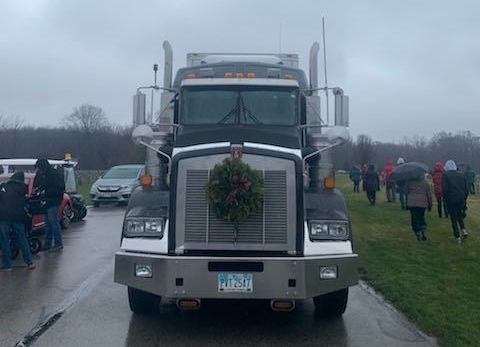
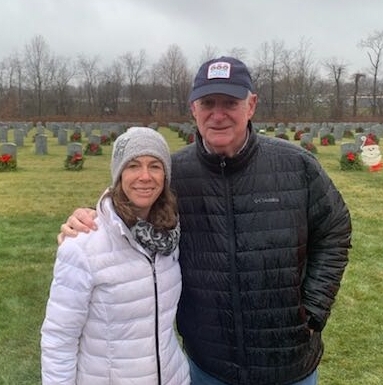 Normally I volunteer for Wreaths Across America in San Diego, where the sun kisses the ocean in a beautiful backdrop. For today’s ceremony, I found myself in Cleveland, Ohio. When my dad and I departed for Western Reserve National Cemetery, it was snowing. By the time we arrived, snow had turned to rain, but it couldn’t dampen the mood.
Normally I volunteer for Wreaths Across America in San Diego, where the sun kisses the ocean in a beautiful backdrop. For today’s ceremony, I found myself in Cleveland, Ohio. When my dad and I departed for Western Reserve National Cemetery, it was snowing. By the time we arrived, snow had turned to rain, but it couldn’t dampen the mood.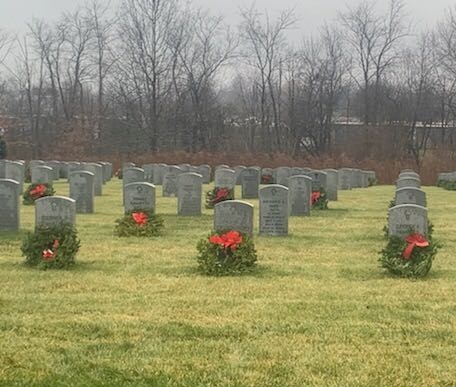 For volunteers like me and my dad, Wreaths Across America is a heartfelt reminder to reflect on the sacrifices that veterans have made on our behalf. At every Wreaths Across America ceremony, they play Taps, the flag waves overhead. But you don’t need either one to know this day matters. Just observe the expressions of those around you.
For volunteers like me and my dad, Wreaths Across America is a heartfelt reminder to reflect on the sacrifices that veterans have made on our behalf. At every Wreaths Across America ceremony, they play Taps, the flag waves overhead. But you don’t need either one to know this day matters. Just observe the expressions of those around you.